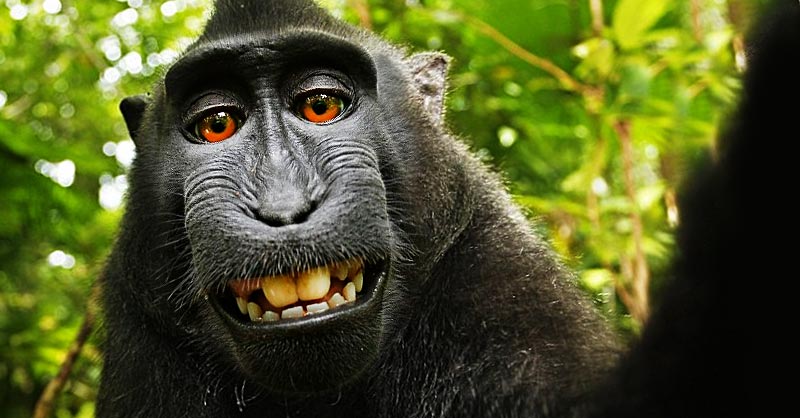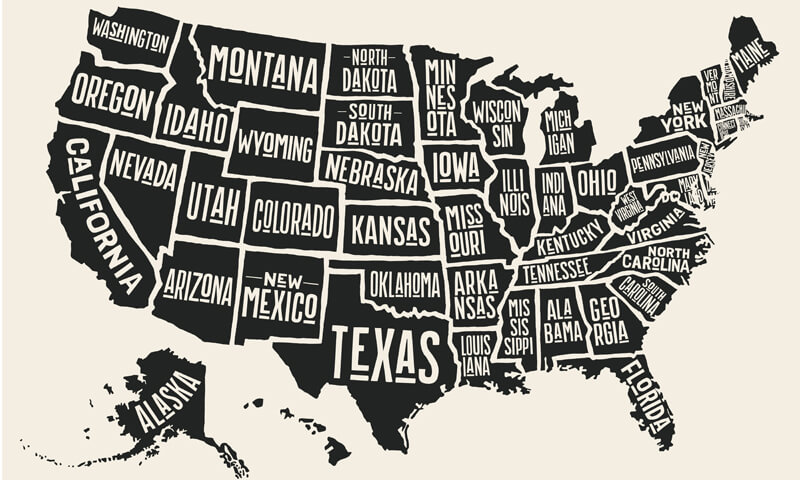
The viral monkey selfie.
Summary: PETA and a wildlife photographer have settled the monkey selfie case.
A monkey taking a selfie should’ve been nothing more than cute, but for one photographer, the picture turned into a nightmare that lasted for years.
In 2011, photographer David Slater was in the jungle when a monkey named Naruto grabbed his camera and took a picture of himself. Slater thought that the selfie was cute, and he started to make money off of it by selling it in books and online. Wikipedia published the photo without Slater’s permission, and Slater asked that it be removed because of copyright infringement. It was after this move that the People for the Ethical Treatment of Animals (PETA) stepped in and sued.
Years later, Wikipedia published the viral photo without Slater’s permission, and Slater asked that it be removed because of copyright infringement. It was after this move that the People for the Ethical Treatment of Animals (PETA) stepped in and sued.
“The U.S. copyright law does not make any distinction as to who can be the author of a copyrightable work based upon the species,” Jeffrey Kerr, general counsel to PETA, said to The Washington Post in 2015. “If a human being had made this or similar selfie photographs, they would be the copyright owner of the photograph. Naruto is no different since he is a macaque.”
PETA filed an infringement lawsuit, arguing that Naruto took the picture and therefore owned the copyright. Slater said that a monkey could not own copyrights, and the two parties were engaged in a bitter legal battle that finally culminated this week.
According to CNN, Slater and PETA have reached a settlement. Slater will donate 25% of any revenue derived from the selfie to charities that protect Naruto’s species in Indonesia.
“PETA and David Slater agree that this case raises important, cutting-edge issues about expanding legal rights for nonhuman animals, a goal that they both support, and they will continue their respective work to achieve this goal,” the joint statement said. “As we learn more about Naruto, his community of macaques, and all other animals, we must recognize appropriate fundamental legal rights for them as our fellow global occupants and members of their own nations who want only to live their lives and be with their families.”
The end of this lawsuit must be a relief for Slater. According to The Telegraph, he had only made a few hundred dollars every quarter from the picture but the lawsuit cost him thousands in legal bills. The publication said that he faced financial ruin because of the PETA lawsuit and considered giving up nature photography.
“Photographers are under enough pressure these days to make a living,” Slater wrote last month on Facebook. “We [don’t need] ridiculous interpretations of what copyright is from ignorant people like PETA and Wikipedia.”
As part of the settlement, PETA and Slater asked the San Francisco-based 9th U.S. Circuit Court of Appeals to dismiss the case, which ruled that animals cannot own copyrights. Slater had originally won the suit filed by PETA, but the animal-rights group had vowed to appeal before an agreement was reached.






































